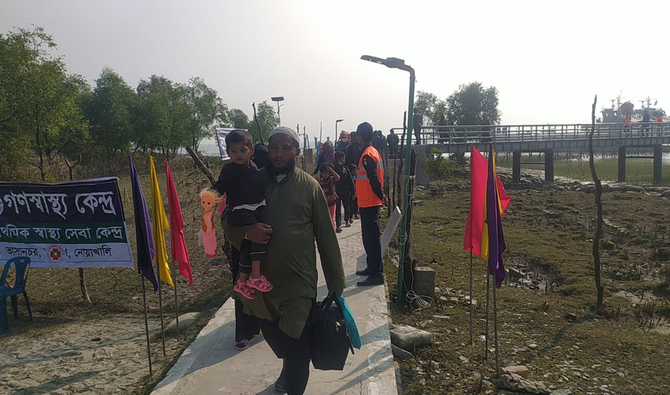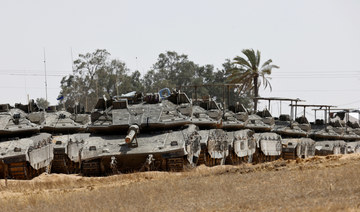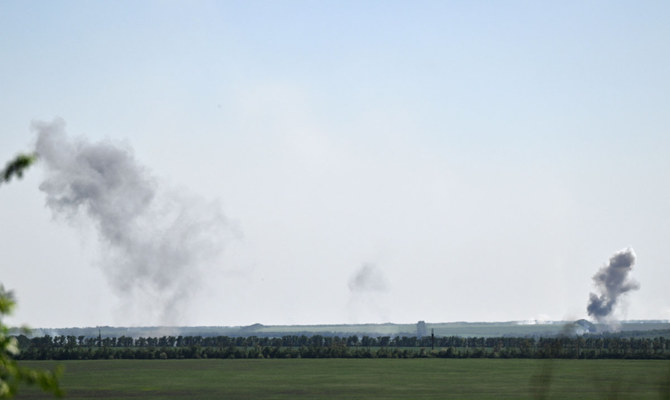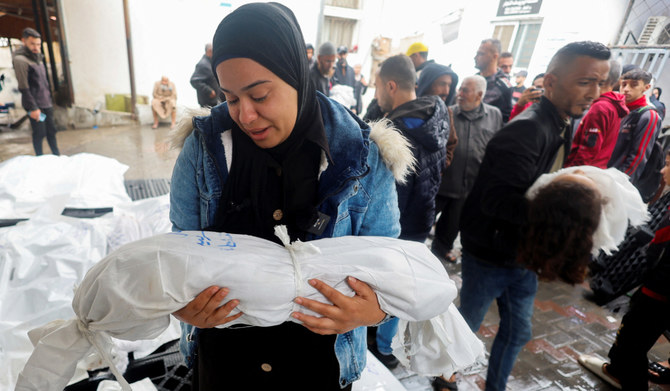DHAKA: A second group of Rohingya refugees in Bangladesh were on Tuesday taken to an island in the Bay of Bengal to start new lives, despite UN concerns for their welfare.
The Bangladeshi navy provided transport for 1,804 Rohingya Muslim refugees — members of an ethnic and religious minority group who have fled violence and persecution in Myanmar — to the isolated Bhashan Char island from overcrowded makeshift camps in Cox’s Bazar.
They followed a first group of 1,642 relocated to the island, 30 km from the mainland, in early December.
Under the $370 million relocation project, the Bangladeshi government has built housing units and infrastructure on Bhashan Char for 100,000 Rohingyas to take pressure off the main refugee settlement in Cox’s Bazar that already hosts more than 1.1 million people.
However, the UN Refugee Agency (UNHCR) said it had not been involved in the relocation operation and expressed concerns over the vulnerability of the island — which only emerged from the sea 20 years ago — to severe weather and flooding.
Mohammed Deen Islam, 35, one of those who arrived on the island on Tuesday, told Arab News: “We are being provided with living room in buildings made of concrete. Here we have far better accommodation facilities compared with the squalid camps at Cox’s Bazar. It’s a very beautiful place.
“Some of my relatives came here earlier at the first attempt of relocation. Seeing the facilities here, they invited me to come,” he said, adding that he had voluntarily applied for relocation with his wife and four children.
Another Rohingya refugee, Nurul Islam, 39, said his relatives who had moved to the island in the first group told him it offered better opportunities to earn a living.
“From my relatives who came here in the first batch, I heard that there were huge livelihood opportunities here on this island. I want to start a new life here and will start fishing as I have previous experience for this job,” he added.
Monowara Begum, 27, told Arab News: “We want peace and happiness. I heard that Bhashan Char was a safer place to live and that is why I volunteered to come here.
“In recent months, there were several incidents of clashes among different Rohingya groups at Cox’s Bazar and sometimes it became unsafe,” she said.
The Bangladeshi government said it was well-prepared to improve the well-being of refugees through relocation and the creation of job opportunities in areas such as cattle rearing, poultry farming, agriculture, and fishing.
“We will start these livelihood activities once the relocation process is completed and the Rohingyas are settled in their new place,” said Mohammed Shamsuddoza Noyon, additional refugee relief and repatriation commissioner of the Bangladeshi government.
“We have already handed over the keys to the new houses to the refugees who landed on Tuesday. Initially, they will be provided with cooked food but shortly they will receive gas stoves and food aid to cook their own meals,” he told Arab News.
He added that the initiative had been supported by local NGOs and that 20 health workers were on the island to provide medical help.
“So far around 30 local aid agencies have enrolled to work for the wellbeing of the Rohingyas and the number is increasing gradually,” Noyon said.
But the relocation program has faced opposition from aid groups, especially the UNHCR, which said it had not been involved in the process and was concerned as to whether those going to the island had made the move through their own free will.
“The UN has not been involved in preparations for the movement or the identification of refugees for relocation. The UN has emphasized that Rohingya refugees must be able to make a free and informed decision about relocating to Bhashan Char based upon relevant, accurate, and updated information,” said UNHCR spokesman, Mostofa Mohammed Sazzad Hossain.
He added that the refugee agency had asked Bangladeshi authorities for an assessment of the island’s condition.
In 1991, nearly 143,000 people in coastal areas of Bangladesh were killed by a cyclone that produced a tidal wave more than four meters high.
The government, however, claims the island is safe as it had built a two-meter-high embankment to protect the housing area.
“The UN’s request to undertake assessments has been under consideration by the government for some time,” Hossain said, adding that the agency required the assessment to decide whether it could be engaged in operations on the island.
“The UN would need to carry out this work before being able to decide on its operational engagement on the island. We would look forward to having substantive discussions on this important matter soon,” he said.






















